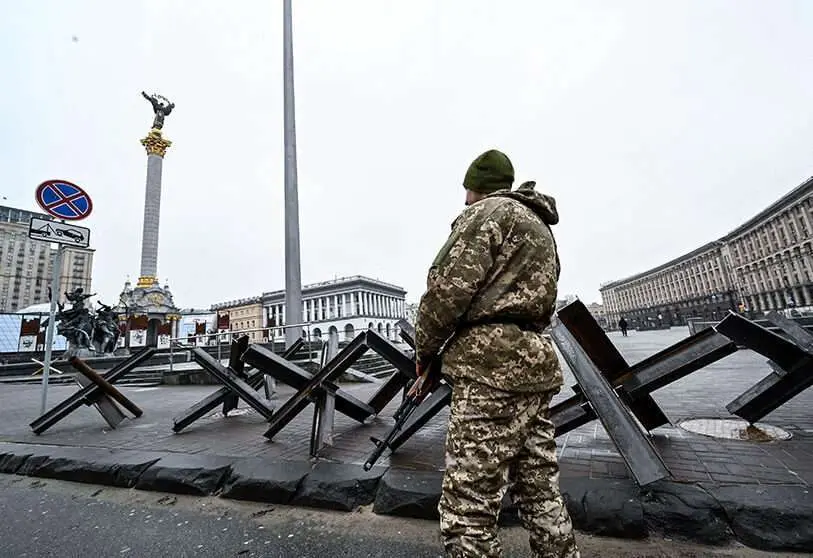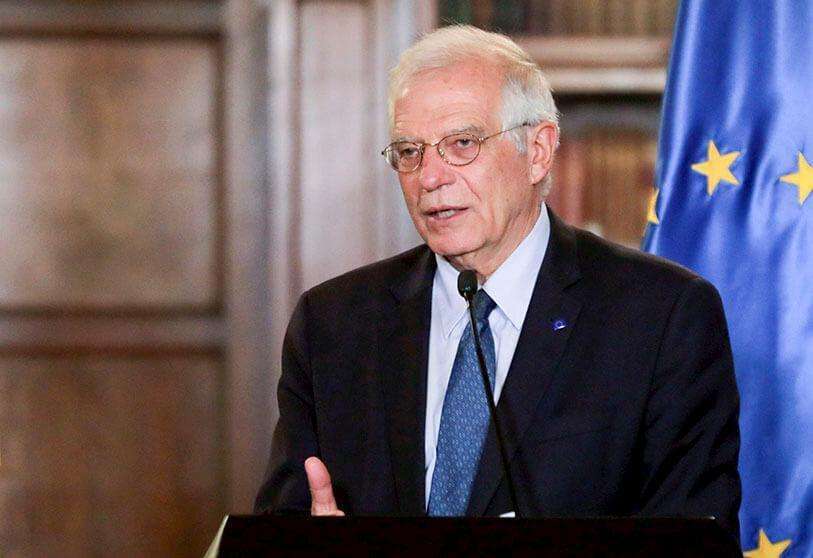Munich Security Conference: Support for Ukraine strengthened

The Munich Security Conference has once again demonstrated majority international support for Ukraine in the face of unjustified aggression by Vladimir Putin's Russia. The aim of the meeting in the Munich city was to broaden the support given to the Ukrainian country in the face of the Russian offensive.
On the second day of the conclave, it was recalled that it should not be forgotten that "there is an aggressor and a victim" and it was sought to broaden and strengthen the alliance that supports Ukraine, adding countries that have shown a less decisive stance in condemning the attack or giving clearer support to the attacked nation. Many leaders at the meeting in Germany stressed that the Russian invasion is a global problem as it is a violation of international law.
Ukrainian Foreign Minister Dmytro Kuleba totally rejected the stance of more neutral countries and pointed out that there is a covert support for Russia's aggressive stance by leaving Ukraine forgotten in the face of Vladimir Putin's Russian offensive, which in recent days has intensified attacks against certain Ukrainian cities such as Kharkov and Bakhmut, coinciding almost coincidentally with the first anniversary of Russia's invasion of Ukraine, which Vladimir Putin justified as an action to "demilitarise and denazify" Ukraine as a threat to the neighbouring Russian nation. A presidential argument that was rejected outright by much of the international community. "There are countries that say they are neutral, but by doing so they are supporting Russia", said Dmytro Kuleba during a dialogue at the Munich Security Conference.

Meanwhile, Spain's foreign minister, José Manuel Albares, said that the aim is to show several countries that Russia's military action is an unjustified violation of international law and not just a conflict between Russia and the Western bloc of the North Atlantic Treaty Organisation (NATO).
The message that the Munich Security Conference was keen to repeat repeatedly is that it must be made clear that there is an aggressor and a victim. "President Putin's imperialist plans are the key to this war. What we are doing is making it clear that we will never accept an imperialist war or President Putin's trampling on international law," said European Commission President Ursula von der Leyen.
They also warned of the dangerous precedent that could be set if Vladimir Putin is allowed to carry out his plans, since, behind him, other leaders could come with the intention of carrying out other aggressions in other parts of the world, or Russia could even continue trying to do so in other places close to its territory, not only against Ukraine, something that Antony Blinken, the US Secretary of State, said.
We live in a new security landscape.
— Ursula von der Leyen (@vonderleyen) February 18, 2023
With @MarinSanna and @amanpour we are discussing the way ahead.
With strong EU and transatlantic unity and boosted own capacities - from defence to energy ↓ https://t.co/95asiVo24B
For his part, Josep Borrell, the European Union's High Representative for Foreign Policy, called on Sunday at the Munich Security Conference for increased military aid to Ukraine and expressed his support for Ukraine's entry into the European Union's institutions. "We are arming Ukraine because war is a major existential challenge to our security. Ukrainian President Volodimir Zelensky and Ukraine do not have enough ammunition, but they have enough motivation," Josep Borrell said in an address to the conclave on German soil. "We have to do more and more quickly, we have to accelerate our military assistance to Europe. All European leaders have said here that Russia cannot win the war, that Ukraine has to win the war. We have to move from words to deeds," he added in statements reported by the EFE news agency.
? LIVE: HR/VP @JosepBorrellF keynote introduction at the @MunSecConf 2023 ahead of panel on European Security #MSC2023 https://t.co/gED8R88X8Z
— European External Action Service - EEAS ?? (@eu_eeas) February 19, 2023
The Munich Security Conference brings together politicians and experts from 96 countries and opened on Friday in this southern German city with Ukraine as the main theme of the speeches and debates of government representatives and heads of state and government. For the first time in 20 years, no Russian representative has been invited to the Munich forum for logical reasons linked to Russia's military intervention in Ukraine.

The Munich Conference has been held since 1963 and was born in the context of the Cold War to establish the positions of NATO member states, but with the fall of communism in the 1990s it began to welcome representatives from other countries outside the Atlantic Alliance sphere to discuss issues related to international security and defence.








